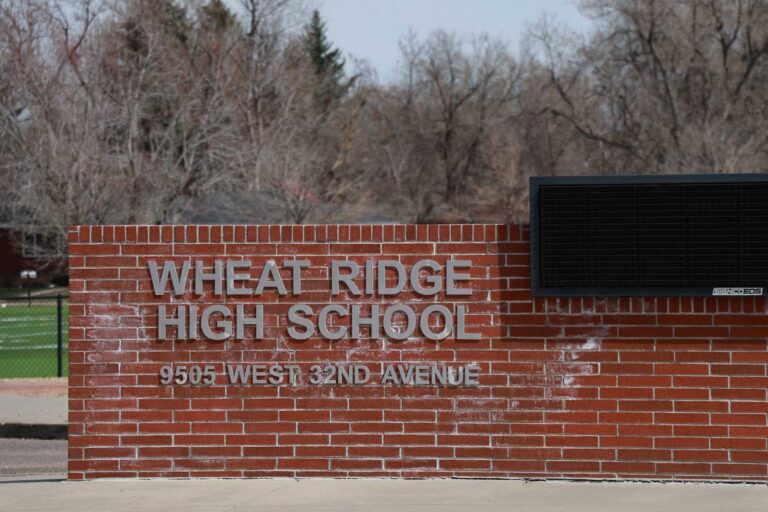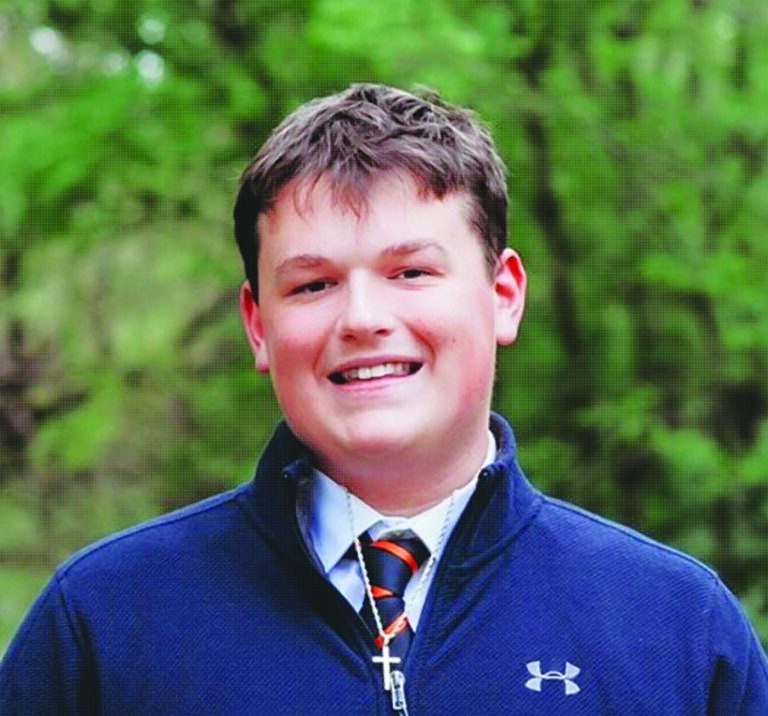Back in the 1960s, the British Prime Minister was asked what the greatest challenge is for a statesman. His famous reply has been repeated many times: “Events, dear boy, events.”
In my remarks to this year’s graduates, I’ve said that In August 2019, they started high school with the same hopes, dreams and fears as millions of students who had gone before them.
But their path turned out to be very different. In February 2020 a global pandemic arrived, and by March they were back at home, struggling with a brand new and too often frustrating world of remote learning.
They’ve watched our country go through a period of political turmoil not seen since the 1960s.
Last February, they watched as Russia invaded Ukraine, and began the largest land war in Europe since World War II.
And this year, they’ve witnessed the dawn of a new economic era, as much more powerful artificial intelligence technologies, like Chat-GPT, went viral.
As Macmillan said, their high school career has been continuously disrupted by, “Events, dear boy, events.”
Looking back, I can say the same for my career as a director of the Jefferson County Board of Education, which also began in 2019.
I ran for office to improve Jeffco’s academic results, which had been declining for 15 years, leaving too many students woefully unprepared to thrive in the 21st century economy.
For example, in 2019, 54 percent of Jeffco third graders were not proficient on the state reading assessment (CMAS) – an improvement of only 2 percent from 2015.
In sixth grade math, performance got worse: 65 percent weren’t proficient in 2019, compared to 58 percent who weren’t proficient in 2015.
Then came the pandemic, and our academic challenges got even steeper, as you can see in the accompanying table.
I’m confident we’re turning the corner. The district is launching new reading and math curricula, and over 16,000 students have signed up for MAP Accelerator, a joint tutoring offering from NWEA and Khan Academy that has proven to be very effective in recovering math learning losses. But we still have a long way to go.
Poor achievement results and the prolonged closure of Jeffco schools during COVID accelerated the declining enrollment in district-run neighborhood schools. Between 2012 and 2021, it fell by 11,058 students – the equivalent of two or three articulation areas.
Sixty-eight of Jeffco’s neighborhood schools operated at less than 80 percent of capacity, the industry threshold for low utilization. Forty-eight of them operated below 65 percent. Falling utilization increased the cost to operate schools while falling enrollment meant less revenue for the district.
Jeffco’s staff costs have also been rapidly rising. In 2012, Jeffco spent $446 million on salary and benefits to serve 77,143 students in its district-run schools. Ten years later, it spent $702 million (57 percent more) to serve 69,526 students (10 percent fewer).
On a per student basis, Jeffco spent $5,782 on total compensation in 2012, and, in constant 2012 dollars, $10,097 per student in 2022. That’s a real increase of 41 percent in compensation cost per student.
Since I joined the Board, Jeffco’s growing financial crisis has gotten worse and finally come out into the open.
The bad news is that painful cuts, including school closures and staff layoffs, will be needed to return to a level of spending that can be sustained without drawing down reserves below their required minimum level.
The good news is that the district has substantially strengthened its financial systems and staff. For example, we’re no longer running a $1.4 billion district using error-filled spreadsheet models.
Jeffco’s Capital Program is also extremely troubled. Of the $767 million available for district-run schools, over $175 million has been spent on cost overruns and projects not disclosed to voters in 2018. Charter schools have not experienced similar cost overruns on their projects.
Over $50 million has been spent on new athletic facilities for schools, mostly in affluent communities, and $20 million will be taken out of Jeffco classrooms to pay for a new pool for the City of Arvada in which the district will have NO ownership interest. In essence, Jeffco taxpayers have given Arvada a $20 million gift!
The good news is that Superintendent Tracy Dorland committed to hiring an independent outside firm to perform a forensic audit, to enable the public to learn the truth about where the money went, and what must be done to ensure this never happens again.
All of these challenges have their roots in a deeply rooted district culture that has historically been very insular, and leaders who took “local control” to an absurd level that produced a largely uncoordinated system of 160 independent schools.
The good news is that an entirely new leadership team is now running the district, and putting in place the new processes, system and organization structures that are critical to returning Jeffco to the nationally recognized-high performing district it was in the 1970s and 1980s.
Their work is very hard, as in all large organizations, resistance to change is strong in Jeffco. Performance will not improve without strong, sustained support from the public, including the business community.
But if we want our children, companies and communities to thrive in the very challenging 21st century economy, we have no choice but to stay the course.

WHEN THE PANDEMIC CAME Jeffco Schools’ academic challenges got even steeper.
Susan Miller is a member of the Jeffco Board of Education, and the proud mother of four WRHS graduates. In her day job, she advises school districts across the country on academic, facilities, organizational and financial issues.






